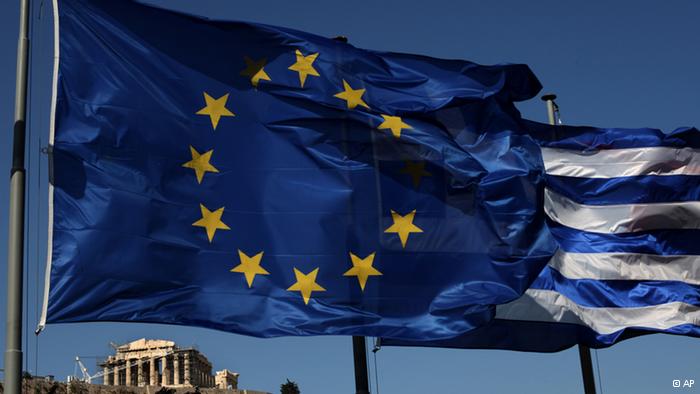By Fortune
Forget about Germany, the real question is whether Tsipras can keep his government together, top analyst warns.
Greece and the Eurozone may have papered over their differences on Monday, but there’s a big risk that they will open up wider than ever as politicians get down to the nitty-gritty of enforcing it.
That’s the view of Moritz Kramer, the head of European sovereign ratings at Standard & Poor’s, who told Fortune in an interview that the hardest part may be keeping the Greek government together, rather than any of the familiar antagonisms between Greece and its creditors.
“The original cohesion that has been driving this government may start to become a little more brittle,” Kramer says. “By the time these commitments are fleshed out more clearly, by April, it might become more brittle still.”
Greece has until the end of April to convince the Eurozone and the International Monetary Fund that it can fix the economy to their satisfaction without inflicting the pain of more tax increases and spending cuts. It’s taking aim in particular at waste (some would say, corruption) in government spending, and cracking down on smuggling and other forms of tax evasion, notably by the rich.
That may not be impossible–even after five years of belt-tightening, over half of Greece’s government spending still goes on items that aren’t pay or pensions–but it’s definitely a tall order. Even governments that are good at collecting taxes, which Greece signally is not (see this startling graphic from the Wall Street Journal), habitually overestimate what they can gain by such measures.
In the meantime, it has to deliver what the former government promised but failed to do, such as end VAT exemptions and cut some more pensions. That is, at least, what the Eurogroup expects of it, even though this radio interview Thursday by Finance Minister Yanis Varoufakis suggests that the government still can’t bear to admit as much to voters at home.
Come April, Kramer says, “You can no longer beat around the bush, you have to introduce bills into parliament. It will become an increasingly difficult balancing act for (Prime Minister Alexis) Tsipras to hold his coalition together.”
That coalition comprises Tsipras’ Syriza party, and the populist right-wing party Independent Greeks. The two parties have little in common except their hatred of the bailout. As defeat on that key aim looms, the Independent Greeks could walk out of the government, forcing Syriza to choose between new elections, or, possibly, a new coalition with the more moderate To Potami party.
The other problem is that Syriza is itself a ‘coalition’ of various left-wing factions (its very name translates as “Coalition of the Radical Left”) that struggle to agree on much. Already, two of its most prominent figures, the 94-year old World War 2 hero Manolis Glezos and Energy Minister Panagiotis Lafazanis are revolting against the proposals Varoufakis sent to his partners on Monday.
In an informal vote at a party meeting Wednesday, 10 of Syriza’s 149 lawmakers reportedly voted against Varoufakis’ deal, and another 30 managed to be absent, according to journalist and author Yannis Palaiologos, suggesting that support is already fraying.
How attitudes in Athens develop as the money runs out is anyone’s guess. Tax receipts are already falling behind schedule, but Kramer stresses the hard constraint is a lack of money at the banks, not at the government (see these charts to see why). If the banks can no longer meet demand for withdrawals, then the government will have to invent some other form of payment, at which the game will be up.
Kramer warns that the European Central Bank is far more likely today than it was in 2012 (at the last Greek near-death experience) to pull the plug if it sees Athens abandoning the Path of Fiscal Righteousness.
“Before, there was a belief in the domino theory,” he says. Markets had already started to bet aggressively on Spain, Portugal and Italy being forced out of the currency union too if Greece left, something that would have wrecked the euro project beyond repair.
“But if the majority of the ECB’s governing council were to think that this is no longer the main threat, but rather an infected limb that might infect the whole body, then they might go for amputation,” he says.



















